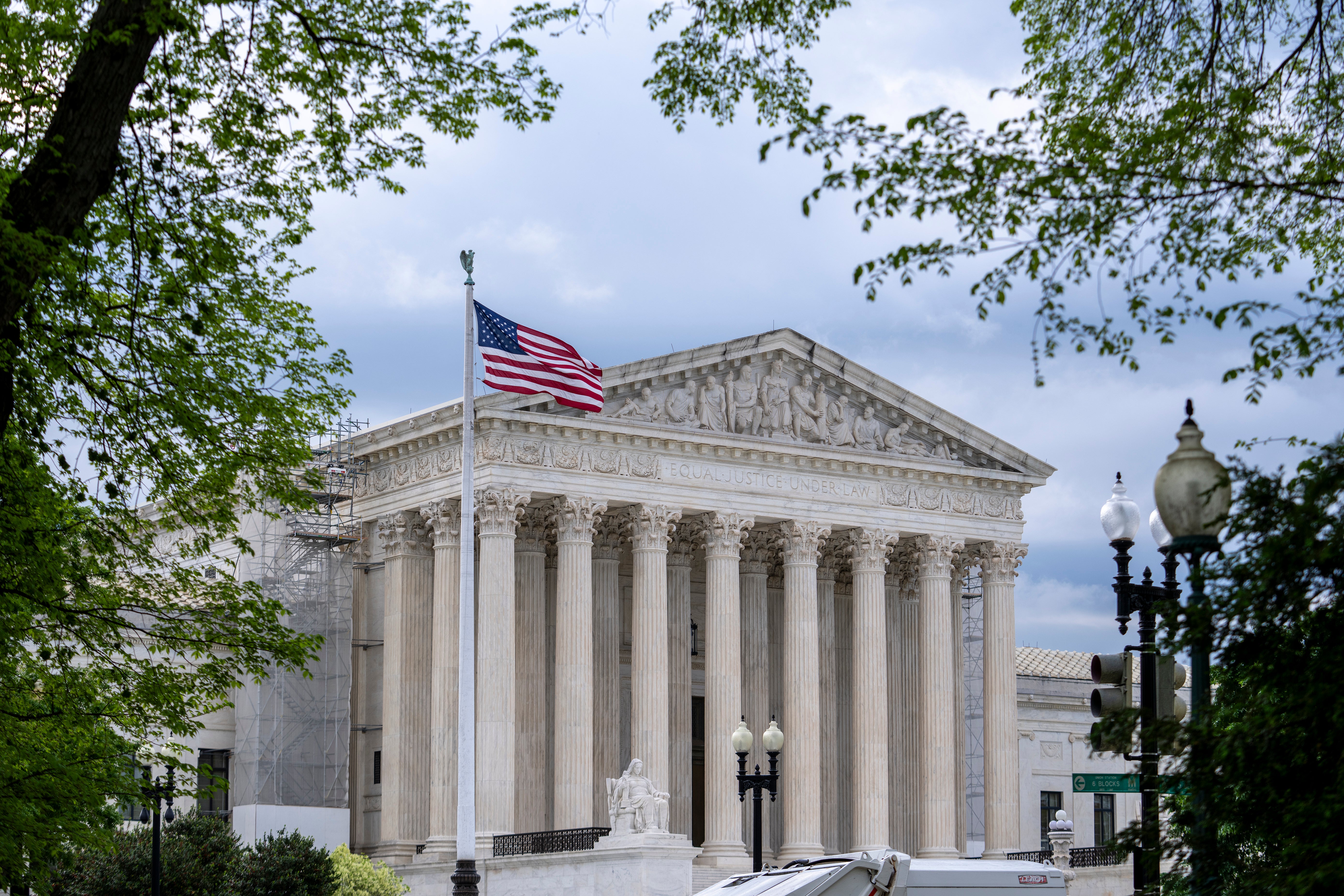Supreme Court orders Louisiana to use congressional map with additional Black district in 2024 vote
Ruling boosts Democrats chances of controlling the House and comes amid claims of racial gerrymandering

The Supreme Court has ordered Louisiana to hold congressional elections in 2024 using a House map with a second mostly Black district, despite a lower-court ruling that called the map an illegal racial gerrymander.
The order allows the use of a map that has majority Black populations in two of the state’s six congressional districts, potentially boosting Democrats’ chances of gaining control of the closely divided House of Representatives in the 2024 elections.
The justices acted on emergency appeals filed by the state’s top Republican elected officials and Black voters who said they needed the high court’s intervention to avoid confusion as the elections approach. About a third of Louisiana is Black.
The Supreme Court’s order does not deal with a lower-court ruling that found the map relied too heavily on race. Instead, it only prevents yet another new map from being drawn for this year’s elections.
The Supreme Court could decide at a later date to hear arguments over the decision striking down the Louisiana map.
The court’s three liberal justices dissented from Wednesday’s order. Justice Ketanji Brown Jackson wrote that the judges who struck down the latest map should have had the chance to produce a new map before the high court intervened.
“There is little risk of voter confusion from a new map being imposed this far out from the November election,” Jackson wrote.
Liberal justices have dissented from prior Supreme Court orders that put decisions near elections on hold. Those orders invoked the need to give enough time to voters and election officials to ensure orderly balloting. “When an election is close at hand, the rules of the road must be clear and settled,” Justice Brett Kavanaugh wrote two years ago in a similar case from Alabama. The court has never set a firm deadline for how close is too close.
“The secretary of state has consistently stated she needed a map by 15 May,” Louisiana Attorney General Liz Murrill said in a statement. “The plaintiffs did not contest it at trial. We will continue to defend the law and are grateful the Supreme Court granted the stay which will ensure we have a stable election season.”
Jared Evans, a lawyer for the NAACP Legal Defense and Education Fund, praised the court’s action, writing: “We are very relieved that [the Supreme Court] agreed with us that it’s too close to the election to insert uncertainty. We will have a map with two majority black districts this fall.”
Edward Greim and Paul Hurd, attorneys for plaintiffs who challenged the new map said Wednesday’s order lets the state impose a “brutal racial gerrymander” on 2024 voters who will cast ballots in districts “segregated by race.” But they predicted eventual victory in the case.
The Supreme Court order is the latest development in a long saga over Louisiana’s congressional districts.
Louisiana has had two congressional maps blocked by federal courts in the past two years in a swirl of lawsuits that included a previous intervention by the Supreme Court.
The state’s Republican-dominated legislature drew a new congressional map in 2022 to account for population shifts reflected in the 2020 Census. But the changes effectively maintained the status quo of five Republican-leaning majority white districts and one Democratic-leaning majority Black district. Noting the size of the state’s Black population, civil rights advocates challenged the map in federal court and won a ruling from Judge Shelly Dick that the districts likely discriminated against Black voters.
Voting patterns show a new mostly Black district would give Democrats the chance to capture another House seat and send a second Black representative to Congress from Louisiana.
Subscribe to Independent Premium to bookmark this article
Want to bookmark your favourite articles and stories to read or reference later? Start your Independent Premium subscription today.

Join our commenting forum
Join thought-provoking conversations, follow other Independent readers and see their replies
Comments